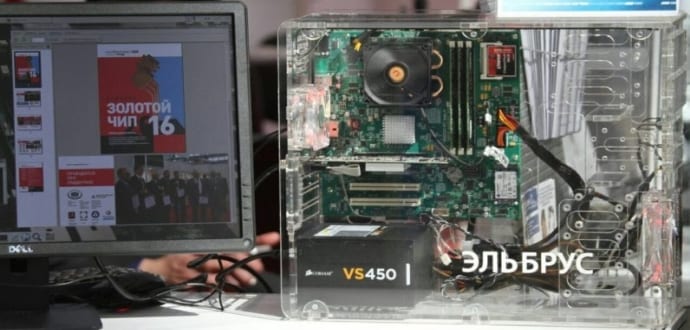Russia showcases the first computer with its own Elbrus-8S processor
Russian state-owned technology Ruselectronics (part of Rostec State Corporation) demonstrated the first prototypes of personal computers and servers based on its own domestic Elbrus-8S microprocessors at the CIPR 2017 IT Conference in Kazan.
According to Ruselectronics, the Elbrus-8S processor will be equipped with up to eight cores, manufactured on a 28-nanometer process line. In contrast, the current-generation Intel Kaby Lake processors use a 14-nanometer process. Further, the Elbrus-8S processor is up to five times faster than the previous generation, Elbrus-4S and has a number of I/O channels that are eight times greater.
The Elbrus-8S utilizes the instruction set Elbrus 2000 and intended for computers running a customized Linux distribution, called Elbrus OS. The OS can perform not only the applications that are compatible with the architecture of the Russian chips, but also the sets of x86/x86-64 instructions.
Ruselectronics also confirmed that the new chip will have features that “ensure information security for users to a new level”, although it did not specify what features and what would they do. The first PCs equipped with this new processor should be available in the market by the end of June.
“This is a new generation of our domestic computer technology. At all its stages, the assembly is carried out at our manufacturing sites and at the facilities of our domestic partners. All of this guarantees a high level of the equipment’s information security,” said Deputy CEO of Ruselectronics JSC Arseny Brykin. “We expect that the first pilot batch of personal computers based on the new processor will be produced by the end of the second quarter of 2017. Today at the CIPR conference in Innopolis, we present prototypes of the new equipment.”
In recent years, Russia has invested in several technology projects so as to reduce its dependence on materials made in the U.S. and promote domestic products, which in turn would simulate its domestic economy as well as national security.
Source: TNW
